Search Results
Showing results 1 to 20 of 82
Fish Prints
Source Institutions
In this hands-on art activity, learners will study and identify features of the external anatomy of a fish.
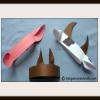
Animal Hats
Source Institutions
In this arts and crafts activity about animals and animal characteristics, learners will design animal hats and role-play as animals.
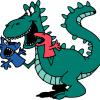
Dinosaur Sock Puppet
Source Institutions
In this activity about dinosaurs, learners first participate in a group discussion about where and when dinosaurs lived, how big they were, and who studies them and how.
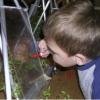
Drawing From Nature
Source Institutions
In this activity, learners draw natural objects to explore the details, differences, and similarities of natural objects.
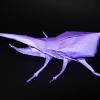
My Insect
Source Institutions
In this activity, learners use information gathered from a variety of sources to design and make their own insect.
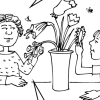
Flower Engineers
Source Institutions
This activity (on pages 24-29) combines science and art to introduce learners to how different animal pollinators spread pollen from one plant to another, and how certain shapes, colors, and smells of
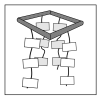
Food Chains and Webs
Source Institutions
In this activity, learners investigate feeding relationships. Learners complete a food web and then make a mobile to represent a food chain.
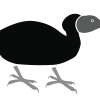
It's All About Birds
Source Institutions
In this activity, learners create their own bird species using arts and crafts materials. The bird call recordings are not online so the introduction activity can't be done, but everything else can.
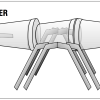
Minibeast Models
Source Institutions
In this activity, learners create models of bugs. Learners use household materials like plastic cups and straws to create models of bugs like centipedes and spiders.
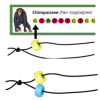
Sequence Bracelets
Source Institutions
In this craft-based activity, learners make DNA sequence bracelets that carry the code of an organism such as a human, trout, chimpanzee or butterfly.
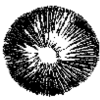
How to Make a Spore Print
Source Institutions
In this activity (p.25 of PDF), learners investigate spores. Mushrooms produce millions of spores which are equivalent to the seeds of plants but without the massive food reserves.
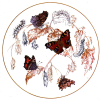
Butterfly Symmetry Painting
Source Institutions
This activity (on page 3 of the PDF) has learners create models of butterfly wings.
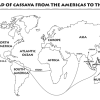
Green Travelers
Source Institutions
In this activity (on pages 23-29), partners use the Plant Traveler Cards, along with a world map and map worksheets, to follow plants such as cassava, chocolate and coffee that grew first in one part
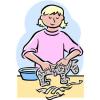
Paper Mache Dinosaurs
Source Institutions
In this activity (located on page 6 of PDF), learners observe and reproduce the distinctive physical features (i.e. plates, sharp spikes, long necks, deep jaws, claws) of their favorite dinosaurs.
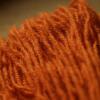
Dyeing Wool with Fungi
Source Institutions
In this activity (p.23 of PDF), learners dye wool with fungi. Learners discover that natural chemicals in fungi can dye wool different colors.
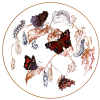
Make Your Own Butterfly
Source Institutions
In this activity (on the left side of page 5, continued on the right side of page 4 of the PDF), learners make models of colorful butterflies.
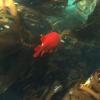
Design a Fish
Source Institutions
In this activity (page 2 of PDF under GPS: Alligator Habitat Activity), learners will study the adaptations different fish species have developed to survive in their habitats.
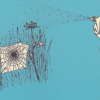
Web Weavers
Source Institutions
In this outdoor science/art activity, learners investigate spider webs by using string to create their own spider webs.
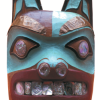
Who Do You Think You Are?
Source Institutions
In this activity, learners use maps to locate the Northwest Coastal region.
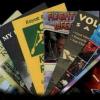
Destination Tidepool
Source Institutions
In this activity (page 7 of pdf), learners research tide pool ecosystems, and then create brochures that "advertise" these environments.
